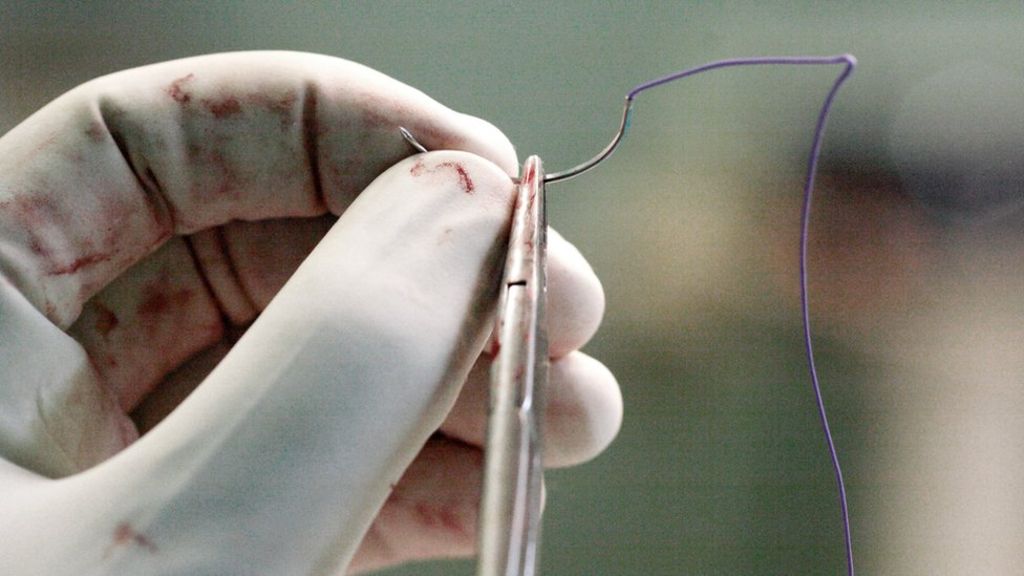Archive for the ‘neuroscience’ category: Page 960
May 6, 2016
Air Force wants swarms of small ‘kamikaze’ drones to defeat missiles
Posted by Karen Hurst in categories: drones, economics, military, neuroscience, surveillance
Nice; let’s hope they hit the right target.
“I need a stealth bomber that’s going to get close, and then it’s going to drop a whole bunch of smalls – some are decoys, some are jammers, some are [intelligence, surveillance, and reconnaissance] looking for where the SAMs are. Some of them are kamikaze airplanes that are going to kamikaze into those SAMs, and they’re cheap. You have maybe 100 or 1,000 surface-to-air missiles, but we’re going to hit you with 10,000 smalls, not 10,000 MQ-9s. That’s why we want smalls.”
SAMs stands for “Surface-to-Air Missile,” and they’re one of the reasons that the Air Force has invested so much in stealth technology over the years: if a missile can’t see a plane, it can’t hit it. The problem is that the economics don’t quite work that way: it’s easier to make a new, better missile than it is to make an existing airplane even stealthier, and modern Air Force fighters serve for around 30 years each—longer if they’re bombers. Missiles are generally cheaper than airplanes, so anyone who wants to protect against aerial attack just needs to invest in a lot of missiles.
Continue reading “Air Force wants swarms of small ‘kamikaze’ drones to defeat missiles” »
May 6, 2016
IARPA funding brings ideas ‘from disbelief to doubt’
Posted by Karen Hurst in categories: innovation, neuroscience
Hmmm;
The intelligence community’s research arm released its annual solicitation looking for the most innovative ideas the private sector has to offer.
May 6, 2016
Mobile phone use not causing brain cancer, University of Sydney study claims
Posted by Karen Hurst in categories: biotech/medical, mobile phones, neuroscience
Cell phones do not cause brain cancer.
Mobile phone use has not caused a rise in brain cancer in Australia, says a new study led by the University of Sydney.
May 6, 2016
A New Device Stimulates The Brain To Boost Athletic Performance — By Christina Farr | Fast Company
Posted by Odette Bohr Dienel in categories: biological, neuroscience
“Daniel Chao, a Stanford-trained neuroscientist, and Brett Wingeier, a biomedical engineer, founded Halo Neuroscience in 2013. … Halo Sport uses electrodes to stimulate the brain’s motor cortex, which controls planning and voluntary movements. Energized motor neurons send stronger signals to athletes’ muscles, which Chao says allows them to reap greater rewards from every rep.”
May 5, 2016
Gene cascade specifies two distinct neuron sets expressing Nplp1
Posted by Karen Hurst in categories: biological, neuroscience
A study of the embryonic nervous system of the fruit fly throws light on how two neuronal cell lineages that develop at different times and in different places in the ventral nerve cord of the embryo can ultimately result in very similar neuronal subtypes. The study, publishing in the Open Access journal PLOS Biology on 5th May, is a collaboration between research teams in Madrid (Spain) and Linköping (Sweden).
In the paper, Hugo Gabilondo, Johannes Stratmann and their colleagues report that a crucial terminal selector gene, col, is activated by different sets of spatio-temporal selector genes in the two different neuronal cell lineages. In dAp neurons, which are present throughout the thorax and abdominal segments, col is activated directly by the action of the early temporal genes Kruppel (Kr) and pdm, and the GATA transcription factor gene grain (grn). By contrast, in Tv1 neurons, which are specific to the thoracic segments, col is activated by the late temporal gene cas, together with several other genes that feed forward onto the terminal selector gene cascade downstream of col. The result is expression of the neuropeptide Nplp1 in both dAp and Tv1 neurons.
The developing nervous system generates many different neuronal cell types; understanding this process of cell fate specification remains a major challenge for biologists. Complex cascades of regulatory genes are known to be involved, starting with spatial and temporal selector genes and finishing with terminal selector genes, all of which act in various combinations to dictate the ultimate neuronal cell type. A particular neuronal cell type often arises in several parts of the nervous system and at different stages of development, however, suggesting that different spatio-temporal cues can converge on the same terminal selectors to generate a similar cell fate. This study reports evidence of this phenomenon in an example from the fruit fly, Drosophila melanogaster.
Continue reading “Gene cascade specifies two distinct neuron sets expressing Nplp1” »
May 5, 2016
Animal study shows flexible, dissolvable silicon device promising for brain monitoring
Posted by Karen Hurst in category: neuroscience
May 5, 2016
Use Your Brain. Ditch Your Fitness Tracker
Posted by Karen Hurst in categories: health, neuroscience, wearables
Interesting approach.
If you’re at all interested in your health, it’s likely you’ve joined the 20 percent of Americans who’ve incorporated fitness trackers into their daily ensemble. From monitoring steps and daily activity to sleep, an ever-growing number of devices are tracking and analyzing our body’s data in an effort to make us better.
But how good is this tracking? Despite noble intentions, the scientific reality is that much of the data these trackers provide is insufficient and inaccurate — and in turn, are not as effective as they promise.
Continue reading “Use Your Brain. Ditch Your Fitness Tracker” »
May 5, 2016
Humans Are Fatter Than Primates, But It Fuels Our Bigger Brains
Posted by Karen Hurst in categories: energy, food, neuroscience
Left hemisphere of J. Piłsudski’s brain, lateral view.
A new study has found that a faster metabolism is the main reason that humans were able to evolve bigger brains than other closely related apes. Humans burned 635 more calories per day than gorillas, and a whopping 820 more calories per day than the orangutans in the study.
Although the study findings seem promising, more research on the issue is required since the research was performed only on adults.
Continue reading “Humans Are Fatter Than Primates, But It Fuels Our Bigger Brains” »
May 5, 2016
Unmanned robot surgery works in pig trial
Posted by Karen Hurst in categories: biotech/medical, neuroscience, robotics/AI
Here is the real challenge to ask the average parent or grandparent on the street: are you willing to allow your 5 year old child or grandchild to have a brain tumor removed by an autonomous robot without any trained & experienced surgeon or nurse supervision?
An unmanned robot has been used to stitch together a pig’s bowel, moving science a step closer to automated surgery, say experts.
Unlike existing machines, the Star robot is self-controlled — it doesn’t need to be guided by a surgeon’s hands.
Continue reading “Unmanned robot surgery works in pig trial” »















